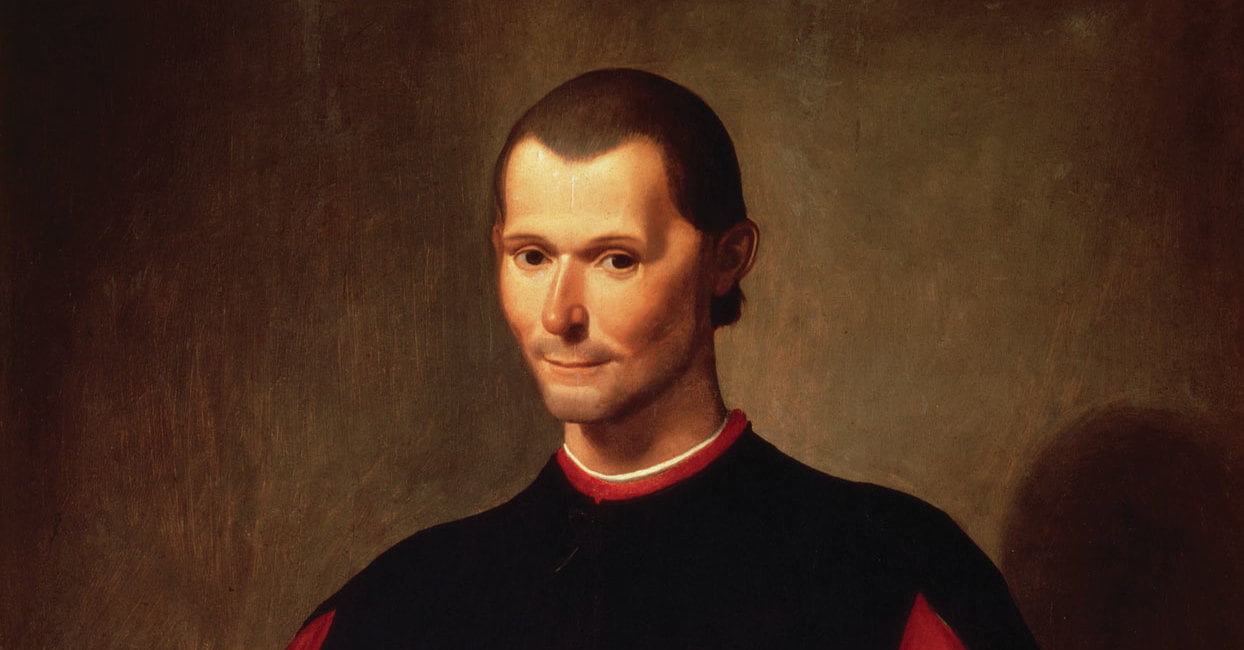The undisputed phrase that the end justifies the means is often attributed to the Renaissance thinker Niccolo Machiavelli in a variety of discussions. We checked whether this statement is in his writings.
The expression “The end justifies the means” is often associated with the Italian thinker. For example, this phrase rendered in the subtitle of Boris Tennenbaum’s book about Niccolo Machiavelli, and on the website of the Dilettant magazine - in the title articles about his life. At the same time, there may be no less disagreements and doubts about who, when and why first formulated this principle than there are arguments in favor of its truth or falsity.
We could not find the formulation “The end justifies the means” in any of the works of Niccolo Machiavelli (1469–1527). In his most famous treatise, “The Prince,” he writes: “The sovereign, if he wants to maintain power, must acquire the ability to deviate from good and use this skill, depending on need.” But in “Discourses on the first decade of Titus Livy” the thinker leads the opposite idea: “It is better to live a private life than to become a monarch at the cost of the death of many people.”
At the same time, the widespread attitude towards Machiavelli's political thought is, as a rule, quite one-sided and does not take into account the context of his time. We can say that the thinker was a supporter of the notorious stability, but in his historical era this was exactly what the fragmented Italian states, constantly at war with each other and at the same time mired in internal intrigues, lacked. According to Machiavelli, the goal or mission of the sovereign (yes, beyond the scope of everyday morality) is not to take power and hold it at any cost in his own interests, but still to use this power for the benefit of the state and citizens. If a sovereign is allowed to be outside of morality, it is not simply because he is a sovereign, but because his subjects are also living people with their own vices and interests, and not at all examples of infallible virtue.
Machiavelli lived in a difficult time, when it would have been difficult (and even strange) to maintain unclouded optimism about human nature. And the significance of his thought is not that he allegedly offered some kind of theoretical justification for why it is permissible for politicians to be unprincipled and immoral, but that he, in fact, was the first realist in his field, ready to soberly talk about sovereigns and their subjects, types of power and ways of maintaining it, and not build utopian models of how everything ideally could be. Almost all political thought before Machiavelli was devoted to this. He's the same called for “to follow the truth, not imaginary, but real - unlike those many who depicted republics and states, which in reality no one knew or saw.” If we were to attribute any phrase to Machiavelli that is not actually in his writings, it would better sound like “politics for politics.” Because his significant contribution to the development of Western thought was precisely that he was the first to separate the sphere of the political from religion and morality and began to talk about actually existing states and societies instead of imagining some ideal ones.
It is symbolic that sometimes the expression “The end justifies the means” attributed to the later Thomas Hobbes (1588–1679), another thinker who held pessimistic views of human nature and saw the role of a strong state in saving people from themselves. This statement also tied up with Machiavelli's younger contemporary Ignatius Loyola (1491–1556), founder of the Jesuit order, and also a member of this order, Antonio Escobar y Mendoza. But used this attribution is rather made by critics and opponents of the Jesuits.
In fact, by the time of Machiavelli and Loyola (XV-XVI centuries) the statement about ends and means was no longer new. At the same time, it is not surprising that it was remembered precisely during the Renaissance, when people’s attention was drawn to ancient texts. Some attributed to the phrase “The end justifies the means” to Ovid, but if you look at a specific quote from his “Heroids”, then he too used maxim, rather deliberately disagreeing with it: “The outcome serves as a justification for deeds. Let those who are accustomed to judge affairs only by success not know success! But Ovid was not the first. An even earlier source with this idea counts "Electra" by the Athenian playwright of the 5th century BC. e. Sophocles. However, in the Russian translation of the tragedy we we find: “An evil plan leads to an evil outcome,” which also doesn’t sound like much of an excuse. And we should not lose sight of the fact that the tragedy itself is about children plotting the murder of their mother out of revenge for her earlier murder of their father. So this may not be the most successful and relevant source of life wisdom for our time.
Thus, the phrase “The ends justify the means,” like many other commonly used expressions, is misattributed. There were authors who did not write this, although they might have agreed to some extent with such an idea (Machiavelli). There were also those who used a similar phrase, but, as the context suggests, obviously did not agree with it (Ovid), and those to whom the controversial statement was attributed by their critics and opponents (the Jesuits).
Incorrect quote attribution
- N. Machiavelli. Sovereign
- https://iphlib.ru/library/collection/newphilenc/document/HASHec8843219e418710e4f8ec
- K. Gilles. Niccolo Machiavelli
If you find a spelling or grammatical error, please let us know by highlighting the error text and clicking Ctrl+Enter.






